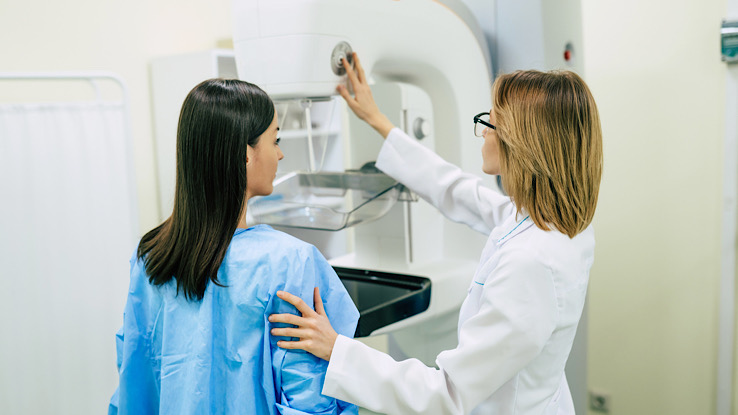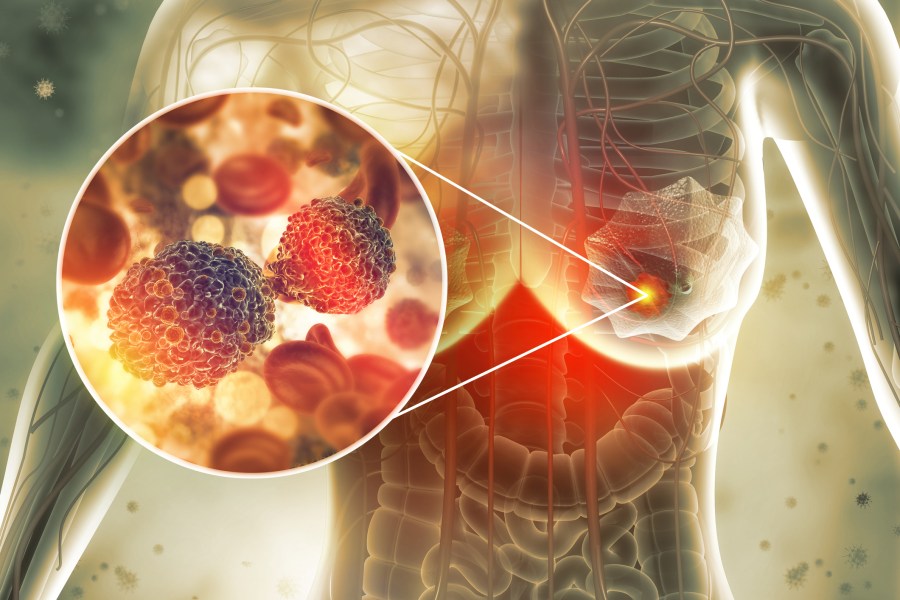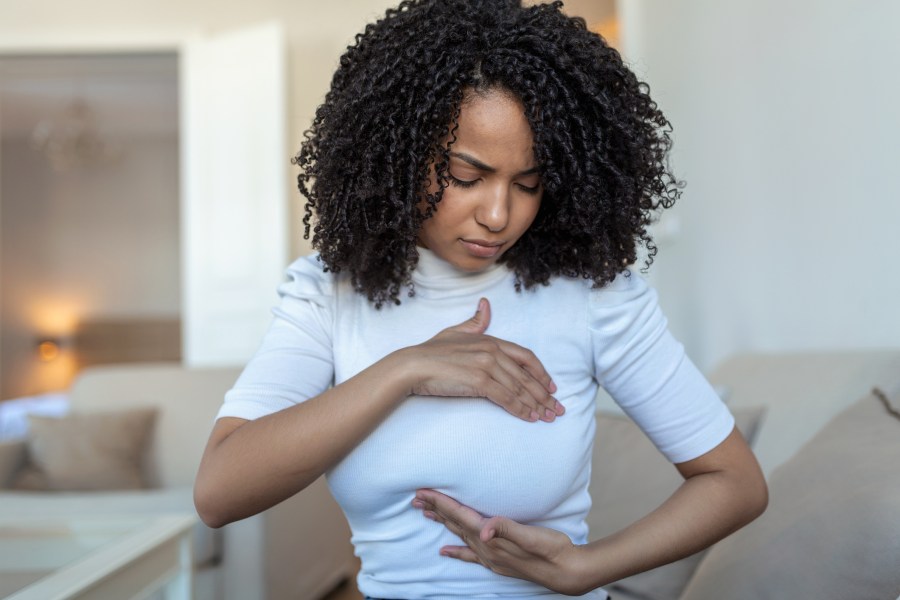
Breast cancer is the most common cancer in females in the United States. Breast cancer screenings and awareness about the symptoms of breast cancer are increasing, so doctors can diagnose it earlier. If it is detected early in the disease course, there are effective treatments available. Learn more about what are the early signs of breast cancer.
How Common Is Breast Cancer?
Breast cancer is very common. About 1 out 8 females in the United States will get breast cancer. Your risk is higher if you have a mother, sister, or daughter with breast cancer. But most females diagnosed with breast cancer don’t have any family history. For males, the risk of breast cancer is much lower. About 1 of every 833 males will get breast cancer.
What Are the Early Signs of Breast Cancer?
Most people have no early warning signs of breast cancer and are asymptomatic. Therefore, most breast cancer patients are diagnosed with a screening mammogram. This highlights the importance of getting regular mammograms according to your doctor’s recommendations.
About 1 in 20 people will have breast pain as an early stage sign of breast cancer. Though breast pain can be present with many different conditions, some of which are less serious than others. If you’re having breast pain, please talk to your doctor.
What Are the Late Signs of Breast Cancer?
When breast cancer becomes more advanced, more symptoms can develop. As long as you get mammograms, as your doctor says, you can catch breast cancer early before these symptoms develop. The symptoms of advanced breast cancer include:

- New lumps in your breast or underarm area
- Changes in the size or shape of your breast
- Redness or rashes on your breasts
- Nipples that leak fluid or turn inward
What Are the Inflammatory Breast Cancer Early Signs?
Inflammatory breast cancer is a rare type of advanced breast cancer, and less than 1 in 20 people have this type of breast cancer. The symptoms of inflammatory breast cancer are similar to that of an infection called an abscess, which is a pocket of fluid under the skin. This can be associated with swelling, redness, pain, and skin changes that look like the surface of an orange. Even though it can look like the inflammation associated with an infection, it’s caused by cancer growth instead of infection. These don’t always appear on screening mammograms, so if you notice these symptoms specifically, you should discuss them with your doctor.
What Are Early Signs of Breast Cancer in Males?
Males are less likely than females to develop breast cancer, and males do not get regular screening mammograms. Therefore, males should pay attention to any changes in their breasts, especially if those changes are more on one side than the other. The early signs of breast cancer in males include those similar to females, such as:
- New lumps in the breast tissue
- Swelling of the underarm area
- Skin dimpling
- Nipples that leak fluid
- Nipples that turn inward
- Redness or rashes on the breast
- Scaly or flaky skin around the nipple
What Are Breast Cancer Stages?
If you have breast cancer, your doctor will do tests to determine what stage your cancer is, which can help them choose the best treatment for you. There are 4 stages of breast cancer:
- Stage 1: The tumor is small (< 2 cm), and the cancer hasn’t spread outside the breast.
- Stage 2: The tumor is medium (2-5 cm), and the cancer has spread to some nearby lymph nodes but not to other parts of the body. Or the tumor is larger but hasn’t spread outside the breast.
- Stage 3: The tumor is large (>5 cm), and the cancer has spread to nearby lymph nodes and other tissues close to the breast but not to more distant parts of the body.
- Stage 4: The cancer has spread to other parts of the body, like the lungs, liver, brain, or bones.
How Do You Screen for Breast Cancer?

Recommendations change over time. Now the U.S. Preventive Services Task Force does not recommend that females perform breast self-exams at home. This is because it’s not a very sensitive way to screen for breast cancer. It can also lead to anxiety associated with false positives.
Instead, you should be aware of the shape and feel of your breasts in case any significant changes do develop. And you should have screening mammograms every 2 years if you are 50-74 years old. If you are older or younger than this and believe you’re at higher risk, then you can discuss with your doctor whether you should have additional mammogram screenings.
Resource Links:
- “Breast Cancer” via StatPearls
- “Cancer Statistics” via National Cancer Institute
- “Symptomatic Breast Cancers and Why Breast Pain May not Always Need Clinical Review” via European Journal of Breast Health
- “Breast Cancer in Men” via Centers for Disease Control and Prevention
- “Inflammatory breast cancer: early recognition and diagnosis is critical.” via American Journal Obstetrics & Gynecology
- “Breast Cancer Stages” via American Cancer Society“Final Recommendation Statement: Breast Cancer Screening” via U.S. Preventive Services Task Force
- “What Are the Symptoms of Breast Cancer?” via Centers for Disease Control and Prevention





